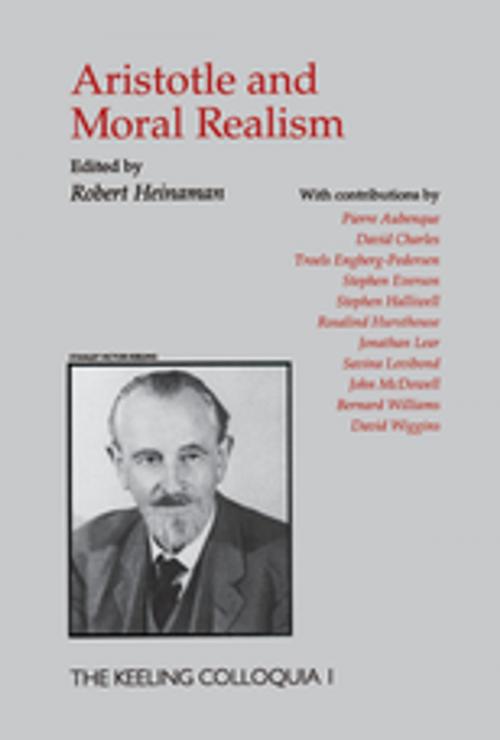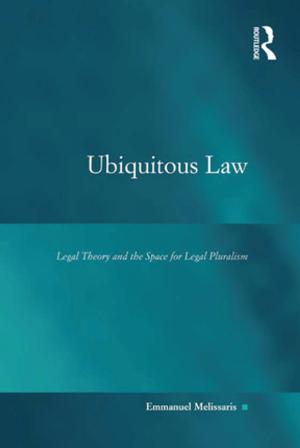| Author: | Robert A Heinaman | ISBN: | 9780429981852 |
| Publisher: | Taylor and Francis | Publication: | March 8, 2018 |
| Imprint: | Routledge | Language: | English |
| Author: | Robert A Heinaman |
| ISBN: | 9780429981852 |
| Publisher: | Taylor and Francis |
| Publication: | March 8, 2018 |
| Imprint: | Routledge |
| Language: | English |
This volume of essays brings together scholars of ancient philosophy and some of today's most distinguished moral philosophers to discuss Aristotle's ethics and the problems of moral realism. One of the central and perennial philosophical problems is the question of whether our ethical assertions and beliefs can be justifiably claimed to rest on some objective foundation. As an upholder of the objectivity of ethics and as one of the most important ethical thinkers in the history of philosophy, Aristotle's writings on these questions are of the greatest interest. Indeed, much of recent moral philosophy has looked directly to Aristotle for inspiration on the problem of moral objectivity. For example, "virtue theorists" were influenced by Aristotle in their proposal that what determines the right thing to do in a particular case is what the virtuous man would do. Similarly, "sensibility theorists" have found support for their view in Aristotle's remarks about the importance of the conditioning of one's desires for the development of virtue and knowledge about the human good.
This volume of essays brings together scholars of ancient philosophy and some of today's most distinguished moral philosophers to discuss Aristotle's ethics and the problems of moral realism. One of the central and perennial philosophical problems is the question of whether our ethical assertions and beliefs can be justifiably claimed to rest on some objective foundation. As an upholder of the objectivity of ethics and as one of the most important ethical thinkers in the history of philosophy, Aristotle's writings on these questions are of the greatest interest. Indeed, much of recent moral philosophy has looked directly to Aristotle for inspiration on the problem of moral objectivity. For example, "virtue theorists" were influenced by Aristotle in their proposal that what determines the right thing to do in a particular case is what the virtuous man would do. Similarly, "sensibility theorists" have found support for their view in Aristotle's remarks about the importance of the conditioning of one's desires for the development of virtue and knowledge about the human good.















